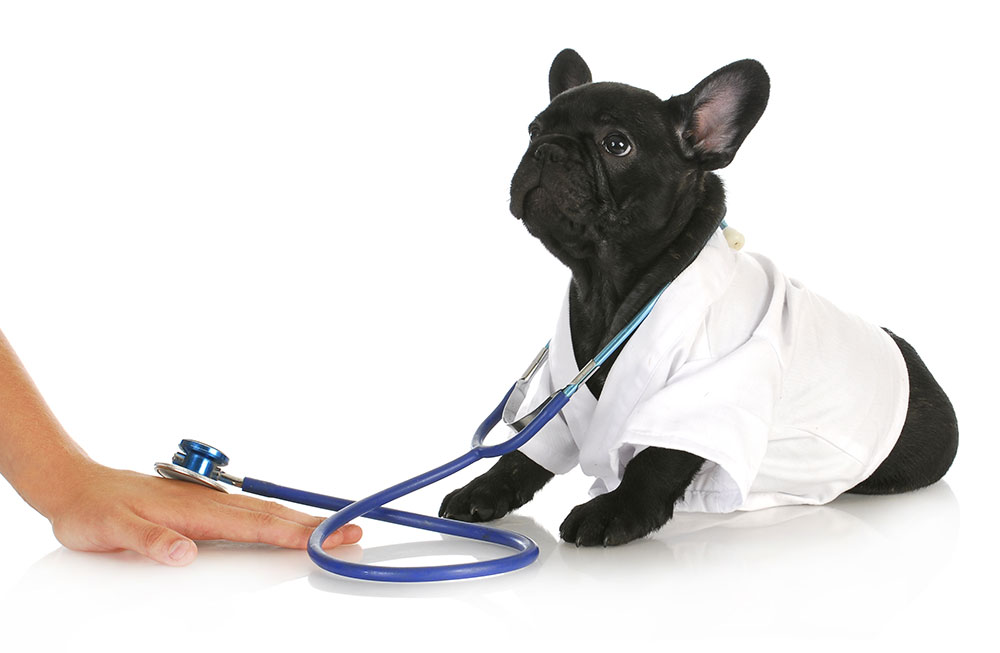Help kiss your pet’s hospital fears good-bye

Caitlin Tearney, DVM, DACVAA
Wheat Ridge Animal Hospital
If you have an anxious pet, your veterinarian may have recommended administering an oral sedative at home prior to coming to the hospital. Additionally, if you know your pet becomes very nervous when going to the veterinarian, it is worth discussing with your vet if an at home sedative or medication to help with anxiety might be beneficial prior to clinic visits. While your pet may be very relaxed at home, stress and anxiety can occur with trips to the hospital and the level of anxiety can escalate over numerous visits. While behavioral training with positive reinforcement should be practiced for long-term management, using pharmaceuticals until this is successful can dramatically improve your pet’s experience at the vet.
Medications we commonly prescribed at Wheat Ridge Animal Hospital include trazodone and gabapentin. We commonly use trazodone in dogs. This drug is used in people as an antidepressant, anxiolytic, and sleep aid. It is classified as a serotonin antagonist reuptake inhibitor. Serotonin is a neurotransmitter found in the brain thought to contribute to happy feelings. In one study, 72% of owners reported adequate calming in their dogs within 1-2 hours of administration1. Trazodone can also be used with good results in cats. Another medication we commonly prescribe to nervous or challenging to handle cats is gabapentin. This medication is a derivative of the inhibitory neurotransmitter GABA that at high doses can decrease fear and anxiety in addition to causing sedation. This medication comes as a capsule or a liquid and can be mixed with a small amount of wet food prior to a vet visit. This medication is a great tool along with other low stress techniques we implement to improve care of our nervous kitties.
Administering sedation at home will often help your pet become less “worked up” once at the hospital. We are often then able to perform indicated diagnostics such as a physical exam and blood draw without additional sedation. If your pet is coming for a planned sedation or anesthetic procedure, pre-emptive sedation at home allows lower doses of drugs to be administered by injection which potentially have less negative effects on the heart and lungs. It can decrease overall stress during the entire visit and be safer for your pet and our staff.
A “trial dose” of this medication at home can be very useful. Assessing the response your pet has to the medication at home in its regular environment can give your veterinarian an idea of how your pet will do when it comes to the hospital. Please discuss concerns you have about your pet’s anxiety with your veterinarian and take comfort knowing we have a variety of options available to try to improve your pet’s experience at the hospital.
- Use of trazodone as an adjunctive agent in the treatment of canine anxiety disorders
For more information, visit www.wheatridgeanimal.com







